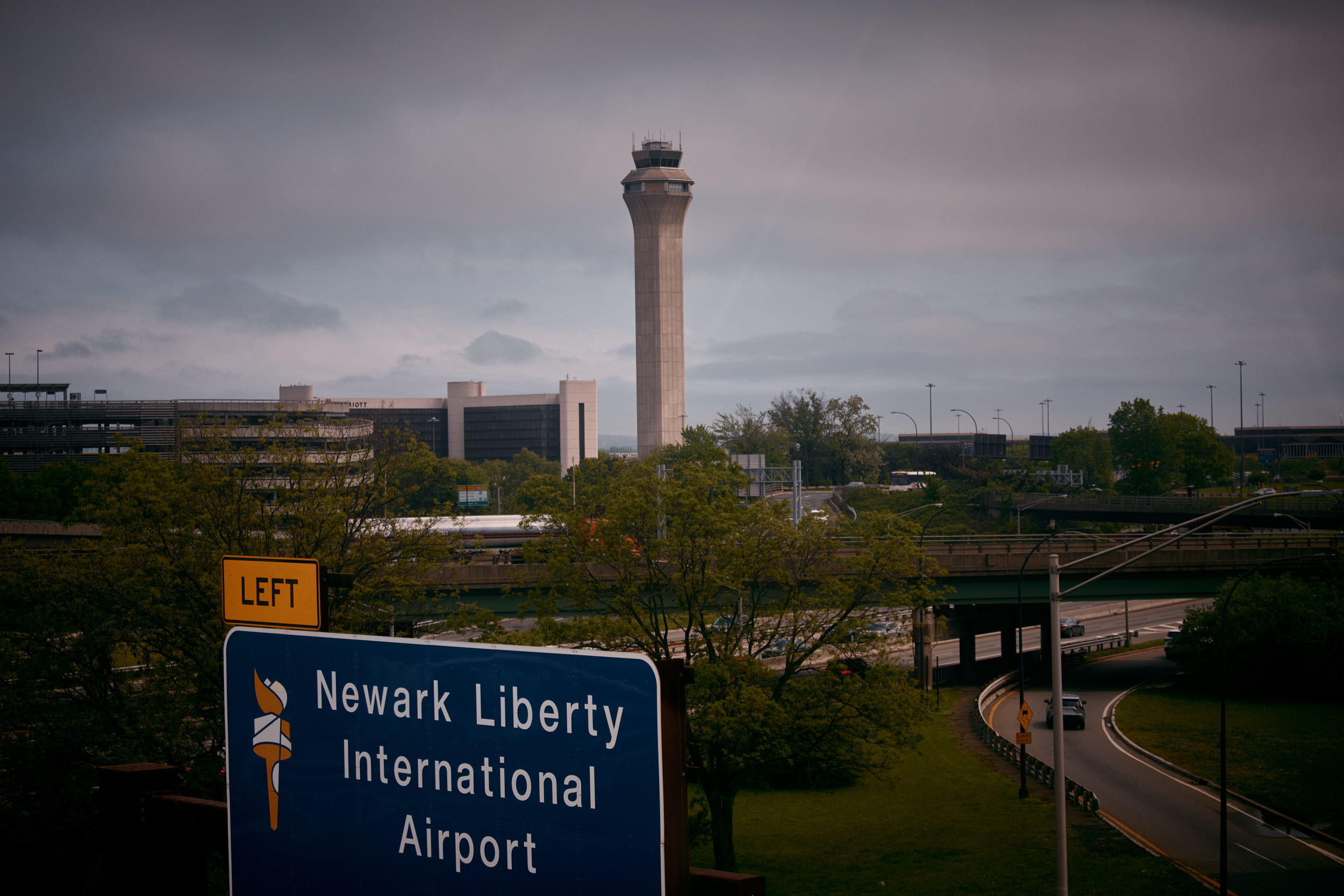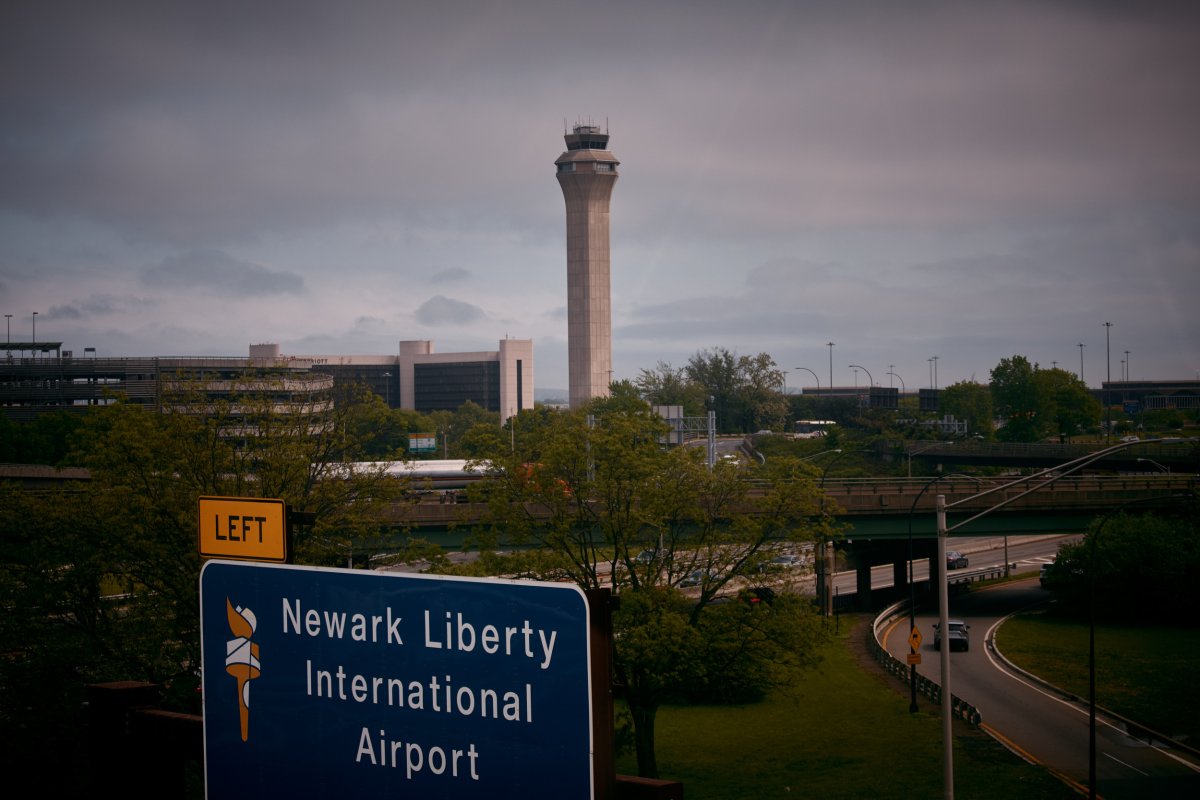
The Federal Aviation Administration said Wednesday that it is “accelerating” staffing and technology upgrades, considering excessive flight delays and cancellations for travelers going in and out of Newark Liberty International Airport over the past week.
Why It Matters
Newark has experienced disruptions since April 28, when air traffic controllers at Philadelphia’s TRACON reportedly lost contact and couldn’t properly guide planes for upwards of 30 seconds, according to U.S. Transportation Secretary Sean Duffy.
Since then, hundreds of delays and cancellations have occurred, which local and federal officials have attributed to technology, staffing issues, and inclement weather. United Airlines, which calls Newark its East Coast hub, subsequently removed 35 daily roundtrip flights.
What To Know
On Wednesday morning, the FAA issued new guidance on how it is dealing with the ongoing situation. As of 10 a.m. ET Wednesday, delays (25) and cancellations (84) had dropped compared to previous days, according to FlightAware.
The latest objectives involve slowing arrivals and departures at Newark due to runway construction at Newark combined with staffing and technology issues at Philadelphia TRACON, which guides aircraft in and out of Newark.

Andres Kudacki/Getty Images
The FAA system, known as STARS, processes radar data for Newark and is based in New York. Telecommunications lines feed data from New York to TRACON.
“The FAA is taking immediate steps to improve the reliability of operations at Newark Liberty International Airport,” the agency said in a statement. “This includes accelerating technological and logistical improvements and increasing air traffic controller staffing.”
Newsweek reached out to the FAA for additional comments. A spokesperson for the Port Authority of New York and New Jersey, which operates Newark, referred Newsweek to the FAA.
Duffy and acting FAA Administrator Chris Rocheleau announced the following actions:
- Adding three new high-bandwidth telecommunications connections between STARS and TRACON that “will provide more speed, reliability and redundancy.”
- Replacing copper telecommunications connections with updated fiber-optic technology with greater bandwidth and speed.
- Deploying a temporary backup system to TRACON.
- Establishing a STARS hub at TRACON so that the Philadelphia-based facility does not depend on a telecommunications feed from STARS.
- Increasing controller staffing, as TRACON controllers that handle Newark traffic, with 22 fully certified controllers and 21 controllers and supervisors in training. Ten of those 21 controllers and supervisors are receiving on-the-job training; all 10 are certified in at least one position, and two are certified in multiple positions.
“When staffing or equipment issues occur, the FAA will ensure safety by slowing the rate of arrivals into the airport,” the FAA added. “We will continue to provide updates to the public as we work through these issues.”
United Airlines has offered travel waivers to its customers through May 17, with caveats that tickets must be in the same cabin and between the same cities as originally booked, New York City or Philadelphia.
A United spokesperson told Newsweek it would not share data regarding how many travelers utilized the waivers.
“We’re closely watching what’s happening in Newark and are doing our best to accommodate our guests with their travel,” a spokesperson for Alaska Airlines, one of the 30-plus airlines at Newark, told Newsweek.
What People Are Saying
Transportation Secretary Sean Duffy told Fox News‘ Martha MacCallum: “Let me just say one thing first, it is the FAA’s responsibility and DOT’s [Department of Transportation] responsibility to tell the American people the kind of system that they have, and if it’s getting old, then it has to be fixed. If you don’t tell the people that, they don’t know, and they’re shocked when a Newark happens.”
Democratic Senator Cory Booker of New Jersey, Thursday on X (formerly Twitter): “The revelation that air traffic controllers lost contact with planes at Newark Airport last week is deeply concerning. EWR is a critical transportation hub for our nation, and lies in some of the most congested airspace in the world.
“Congress and the FAA have a responsibility to work together swiftly to correct these issues. I urge the Senate to hold oversight hearings and get to the bottom of these problems.”
What Happens Next
Duffy has reiterated the FAA’s willingness to offer a limited-time incentive package to keep experienced controllers from retiring and increased the starting salary for academy trainees by 30 percent.
That plan includes hiring at least 2,000 controllers this year, on track due to Duffy’s streamlining of the hiring process from the old eight-step process to a five-step process.



